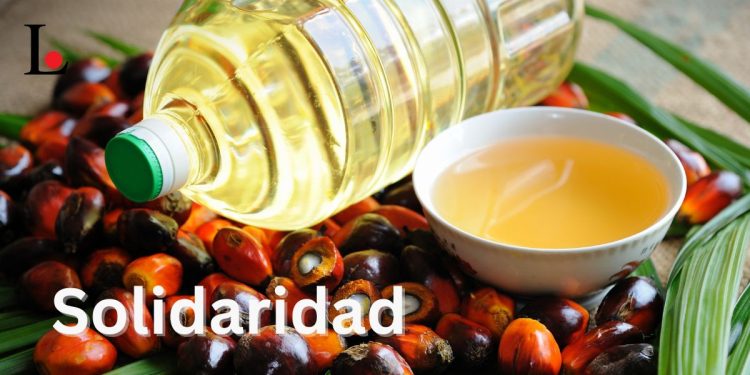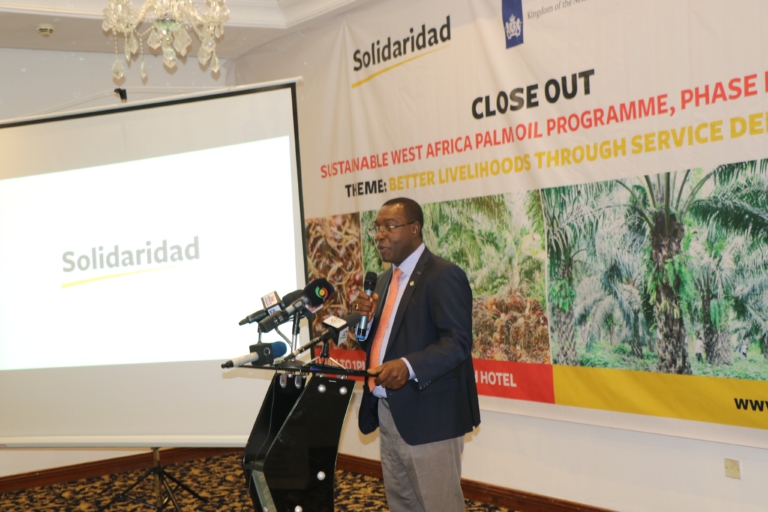Solidaridad, in partnership with the IDH, has launched the second phase of the National Initiative for Sustainable and Climate-Smart Oil Palm Smallholders (NISCOPS-2) in West Africa. This five-year project, supported by the Kingdom of the Netherlands, will be implemented from 2024 to 2028, covering Akwa-Ibom, Cross Rivers, Enugu, and Kogi States in Nigeria.
NISCOPS-2 aims to support over 12,000 smallholder oil palm farmers in promoting environmentally friendly and socially equitable palm oil production. The initiative aligns with the Sustainable Development Goals (SDGs) and focuses on improving the sector’s sustainability. It will help farmers enhance their capacity, improve performance, and develop mechanisms to operate in areas prone to deforestation and peat degradation.
Launch Event Highlights
At the launch event in Abuja, Wouter Plomp, the Ambassador of the Kingdom of the Netherlands, reiterated the Netherlands’ commitment to ensuring the initiative’s success. He emphasized the project’s goal of balancing economic growth in the oil palm sector with environmental conservation, aiming to safeguard Nigeria’s forests while ensuring fair economic distribution.
Nathaniel Amoh Boateng, Head of Programmes for Solidaridad in West Africa, highlighted the project’s sustainability focus:
“NISCOPS-2 seeks to help farmers produce more sustainably without harming the environment, encouraging investment within existing landscapes and reducing deforestation.”
Kene Onukwube, Programme Manager for Solidaridad, elaborated on the advancements anticipated in the second phase:
“The first phase significantly reduced greenhouse gas emissions and improved oil palm yields to 1.5 tons per hectare. This second phase aims to scale these successes across more locations, further enhancing sustainable practices and preparing farmers for international markets by building their capacity on sustainability standards.”
Goals and Benefits
– Environmental Sustainability: The project aims to reduce deforestation and peat degradation by promoting sustainable farming practices.
– Economic Growth: By increasing oil palm yields and ensuring fair economic distribution, the project seeks to enhance the livelihoods of smallholder farmers.
– Capacity Building: The initiative will provide training to farmers on best management practices and sustainability standards.
– Climate Finance: NISCOPS-2 will unlock climate finance opportunities for farmers, enabling them to adopt practices that reduce carbon emissions.
– Ecosystem Services Payment: The project will motivate farmers to engage in forest conservation and rehabilitate degraded landscapes through payment for ecosystem services.
Expected Outcomes
The NISCOPS-2 project aims to build a sustainable palm oil production system in Nigeria, addressing both environmental and social challenges. By improving the livelihoods of smallholder farmers and promoting sustainable practices, the initiative strives to create a more resilient and equitable oil palm sector.
The collaborative efforts of Solidaridad, IDH, and the Kingdom of the Netherlands signify a strong commitment to fostering sustainable development in Nigeria’s palm oil industry. This project sets a precedent for future initiatives aimed at balancing economic growth with environmental conservation.










